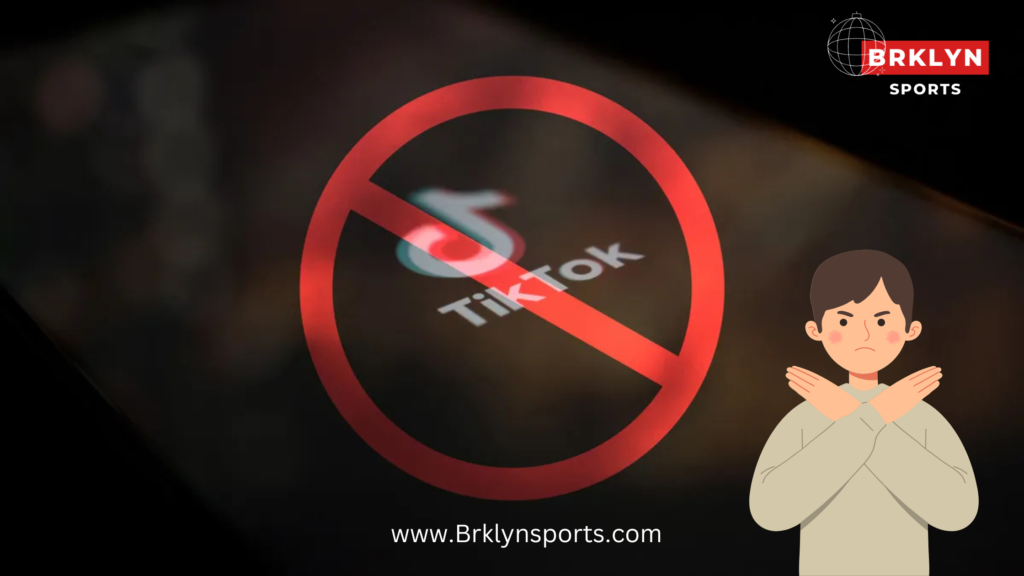Washington, DC.
–Brklynsports
A big decision from the Supreme Court has led to a ban on TikTok in 2025, a popular app used by millions of people in the United States. This ruling will change how Americans interact with the app which people are fond of and the sudden TikTok ban left fans in a shocking state and could create serious political effects as President-elect Donald Trump prepares to take office.
The Supreme Court’s decision allows a controversy on the TikTok ban because of worries about its ownership by the Chinese company ByteDance.
Lawmakers believe that TikTok might allow the Chinese government to access user data or even manipulate content on the app. This debate raises important questions about user privacy, national security, and the freedom of speech.
What’s the Court’s Ruling About?
The Supreme Court ruled quickly to uphold the ban, even though it goes against the long-standing tradition of protecting First Amendment rights, which include free speech.
The Court’s ruling is mostly focused on whether the law applies directly to user content or if it specifically targets the TikTok ban and its parent company.
The justices argue that since the law targets a foreign owner rather than blocking user posts, it does not violate the First Amendment. However, Justice Sonia Sotomayor disagreed slightly, asserting that the concerns about free speech are real and should be considered.
Concerns Over National Security
The Biden administration’s main argument in favor of the TikTok ban concerns national security. Officials are worried that China could access sensitive user data, including private messages and personal information.
The Court mainly focused on these privacy concerns in its decision. TikTok’s data collection practices allow it to gather a lot of information about users, which raises fears about how that data could be misused by foreign governments.
Josie Totah and Karan Brar’s TikTok Kiss: Just a Joke or Something More?
While the Court acknowledges that data collection is common among digital platforms, they found that TikTok’s scale and possible ties to China require special attention. This could set a new standard for how technology and user data are handled in the future.
Changes to First Amendment Rights
The Supreme Court’s ruling represents a significant shift in how First Amendment rights might be applied to digital platforms.
Traditionally, the Court has protected expressions of speech and creativity online. However, this latest decision suggests the Court may begin to take a different approach, especially regarding national security.
Chief Justice John Roberts has hinted that it might be necessary to rethink the rules about online content protection. These changes could affect how people express themselves in the future, especially on social media platforms.
What’s Next for TikTok?
With the TikTok ban set to take effect soon, many are left wondering what will happen to TikTok. Experts initially thought TikTok would be removed from app stores, making it impossible for new users to download it.
Existing users might still be able to use the app, but updates will cease, leading to its gradual decline in functionality.
Drama in the Skies: UFC Champion Khabib Nurmagomedov’s Heated Confrontation with Alaska Airlines
The new political landscape could change things for TikTok. President-elect Trump has expressed his desire to keep TikTok running in America.
He may try to negotiate a solution that allows the app to remain operational, which could provide some hope for its users.
Opposition from Digital Rights Groups
Shortly after the ruling was released, digital rights groups expressed strong disapproval. Kate Ruane, a director at the Washington-based Center for Democracy & Technology, said, “Today’s unprecedented decision upholding the TikTok ban harms the free expression of hundreds of millions of TikTok users in this country and around the world.”
This criticism highlights the fears that the ban could stifle creative expression and limit access to information for a large segment of the population.
Content creators are also deeply worried about how the Tiktok ban will impact their livelihoods.
“I’m very, very concerned about what’s going to happen over the next couple of weeks,” said Desiree Hill, the owner of Crown’s Corner mechanic shop in Conyers, Georgia. “And very scared about the decrease that I’m going to have in reaching customers and worried I’m going to potentially lose my business in the next six months.”
This sentiment underscores the real-world consequences businesses might face as they rely on social media platforms to connect with customers and promote their services.
Final Thoughts
The Supreme Court’s decision regarding TikTok ban is a significant moment in the ongoing discussion about technology, privacy, and national security. It shows how fast the digital world is changing and how laws are often struggling to keep up with these changes.
As this situation unfolds, the future of TikTok, and how technology companies are regulated, will continue to attract attention. The balance between protecting national security and ensuring users can express themselves freely on platforms like TikTok will be a crucial focus in upcoming discussions and users expect to uphold the TikTok ban.

